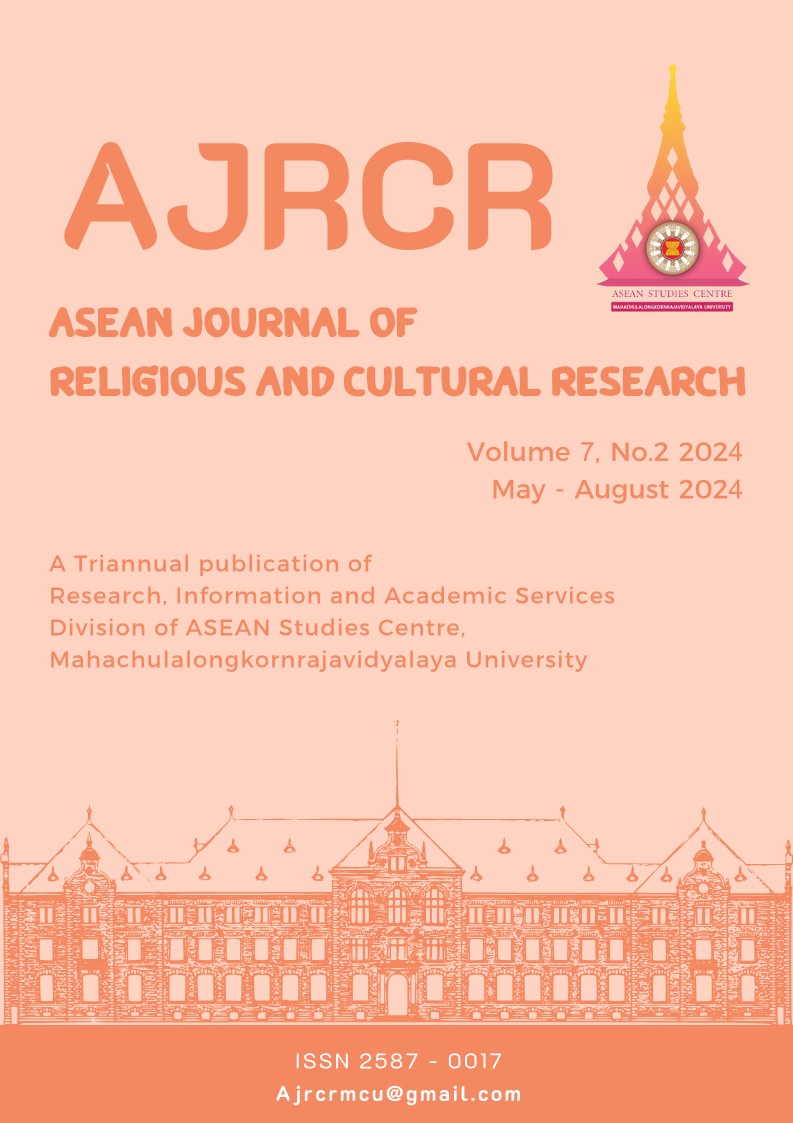Knowledge Management and Empowering Professional Learning Communities based on Buddhist Principles: The Dimension of Sappurisa Dhamma
Keywords:
Knowledge Management, Empowering Groups, Buddhism, Professional Community Learning, Sappurisa-dhammaAbstract
Knowledge management is a crucial process that supports the development of organizations into learning organizations, emphasizing collaboration and teamwork to achieve the highest quality outcomes. The principles of Sappurisa-dharma, rooted in Buddhist teachings, play a significant role in effectively developing both individuals and groups. There are seven components: 1. Dhammaññutā: Establishing a shared understanding of the essence of Dhamma among members. 2. Atthaññutā: Understanding shared goals to ensure that members have clear objectives and can effectively support one another, fostering a collective understanding of the organization and its objectives. 3. Attaññutā: Encouraging self-awareness, which promotes the development of skills suited to each individual recognizing strengths and weaknesses allows for appropriate management and enhances teamwork effectiveness. 4. Mattaññutā: Mindful utilization of resources. 5. Kālaññutā: Effective time management through systematic planning and organization, which leads to smooth and efficient operations. 6. Parissaññutā: Creating a supportive atmosphere through strong interpersonal relationships. 7. Puggalaññutā: Understanding individual members to foster positive relationships within the group, creating an open environment where members support one another. In the context of a community of practice, knowledge management plays an essential role in generating new knowledge and promoting the exchange of experiences applying the principles of Sappurisa-dhamma helps members adapt better by fostering collaboration and learning from shared experiences. This approach enables organizations to develop sustainably and effectively respond to societal needs in any situation.
Downloads
Published
2024-08-28
How to Cite
Nilkote, R. . ., Singsorn, N. . ., Saisena, N. . ., Sukpom, T. . ., & Papan, N. . . (2024). Knowledge Management and Empowering Professional Learning Communities based on Buddhist Principles: The Dimension of Sappurisa Dhamma. ASEAN Journal of Religious and Cultural Research, 7(2), 13–19. retrieved from https://so02.tci-thaijo.org/index.php/ajrcr/article/view/274802
Issue
Section
Articles





